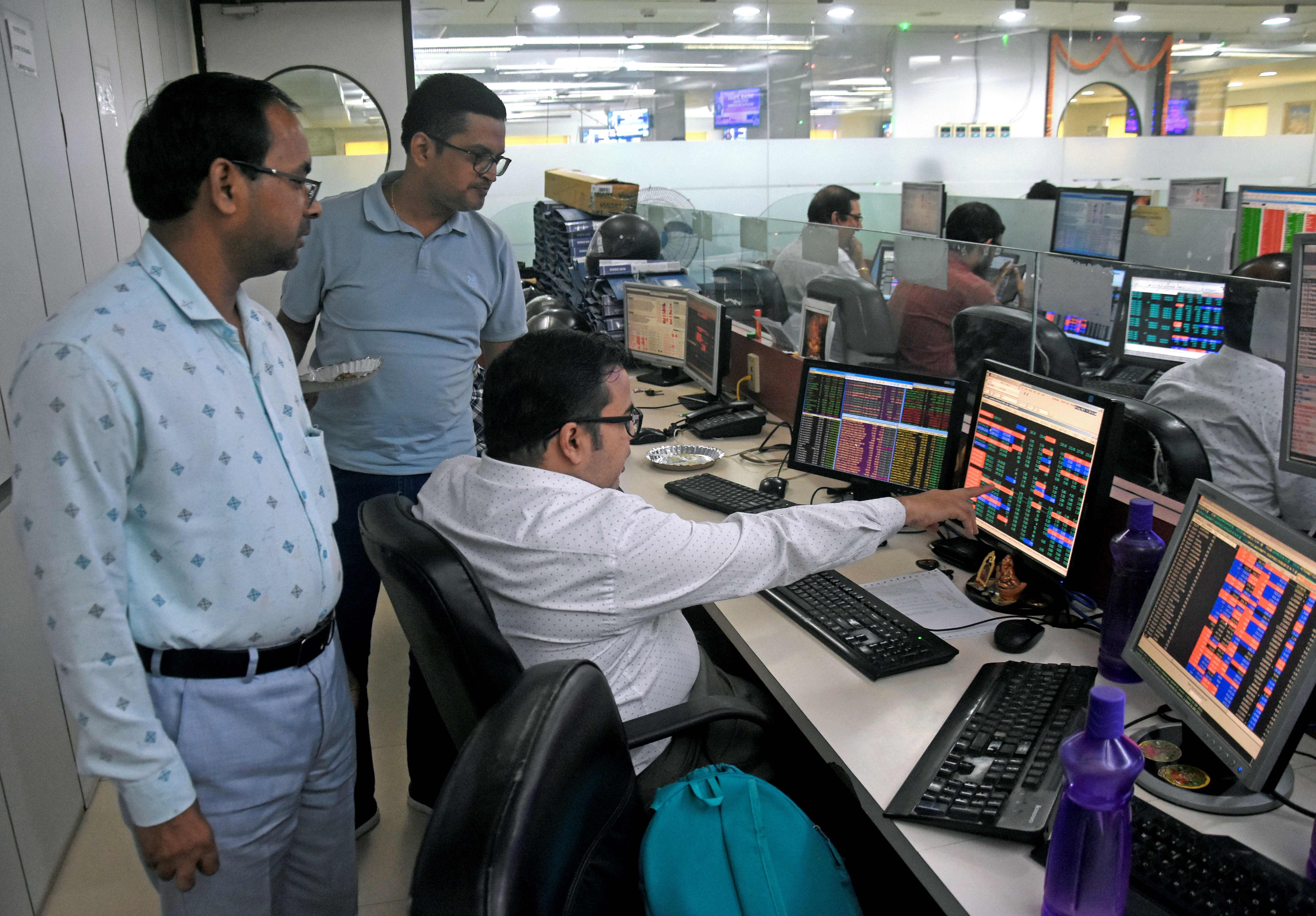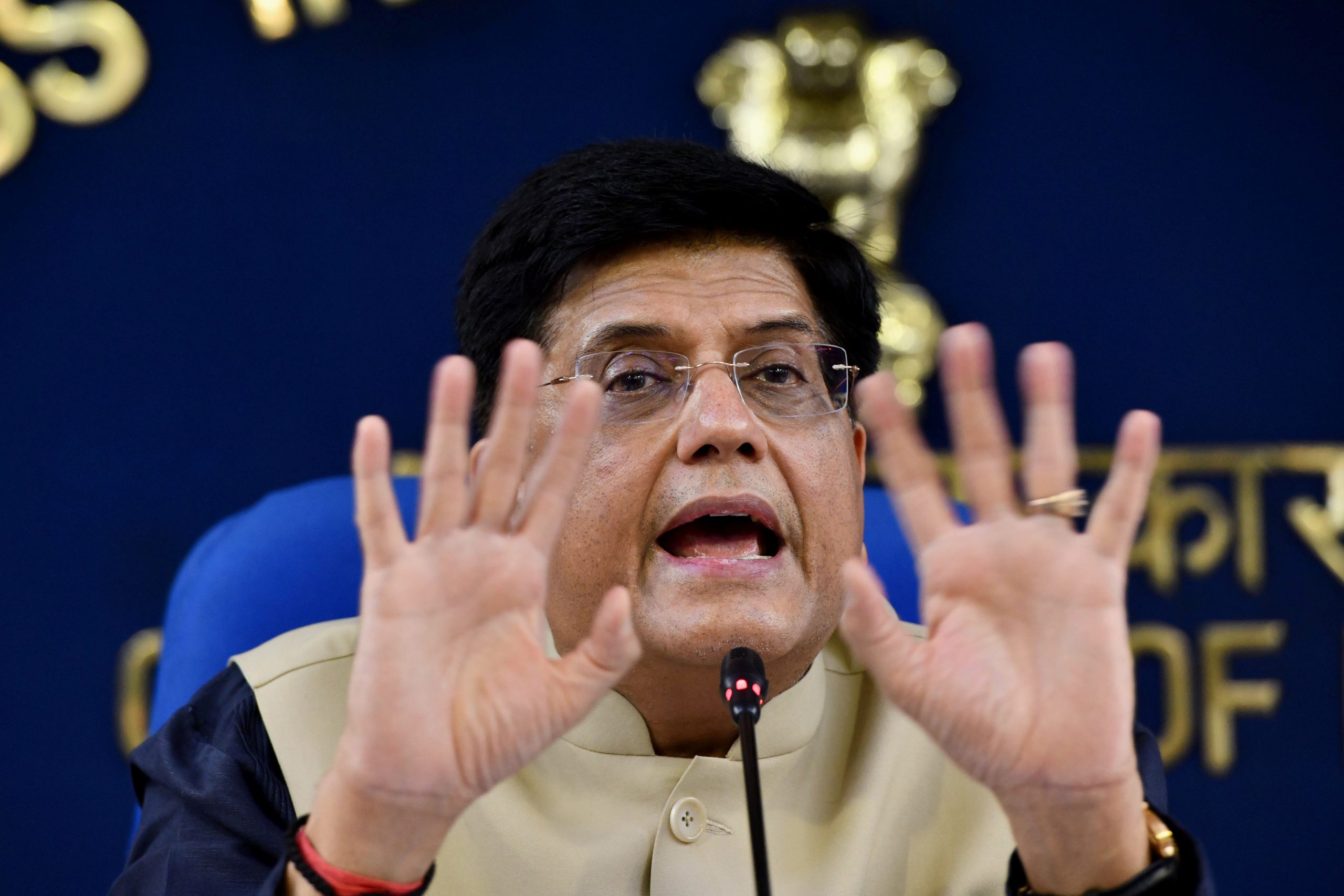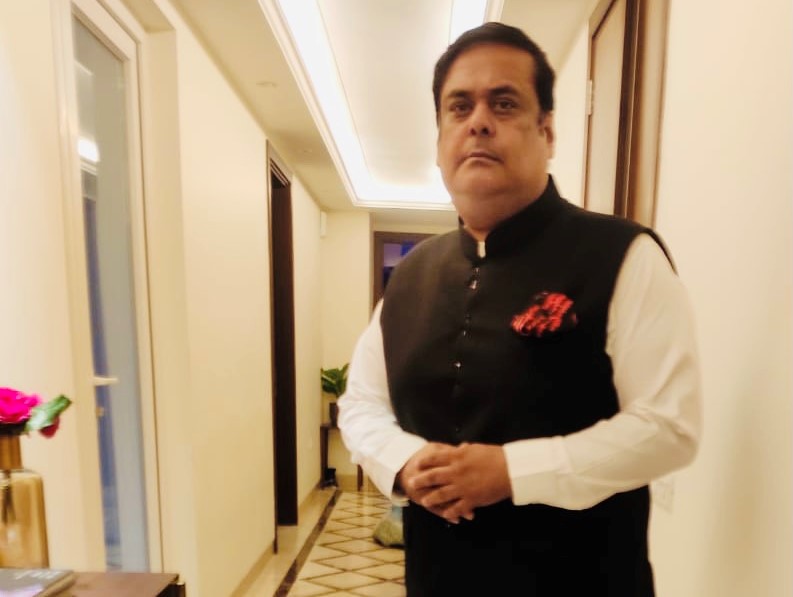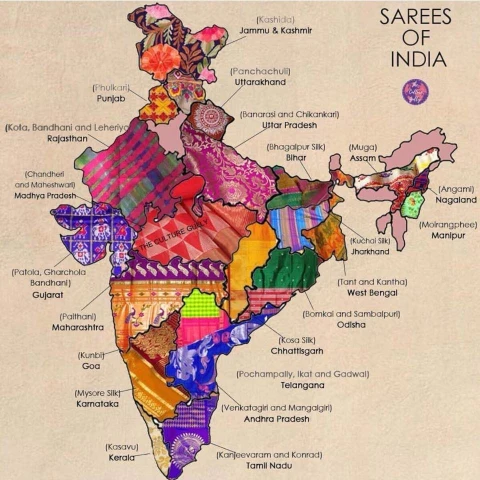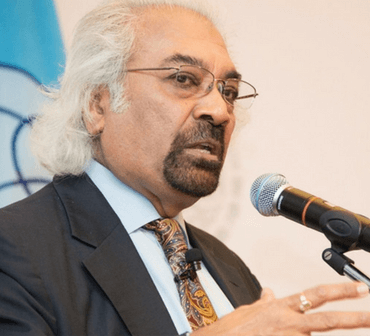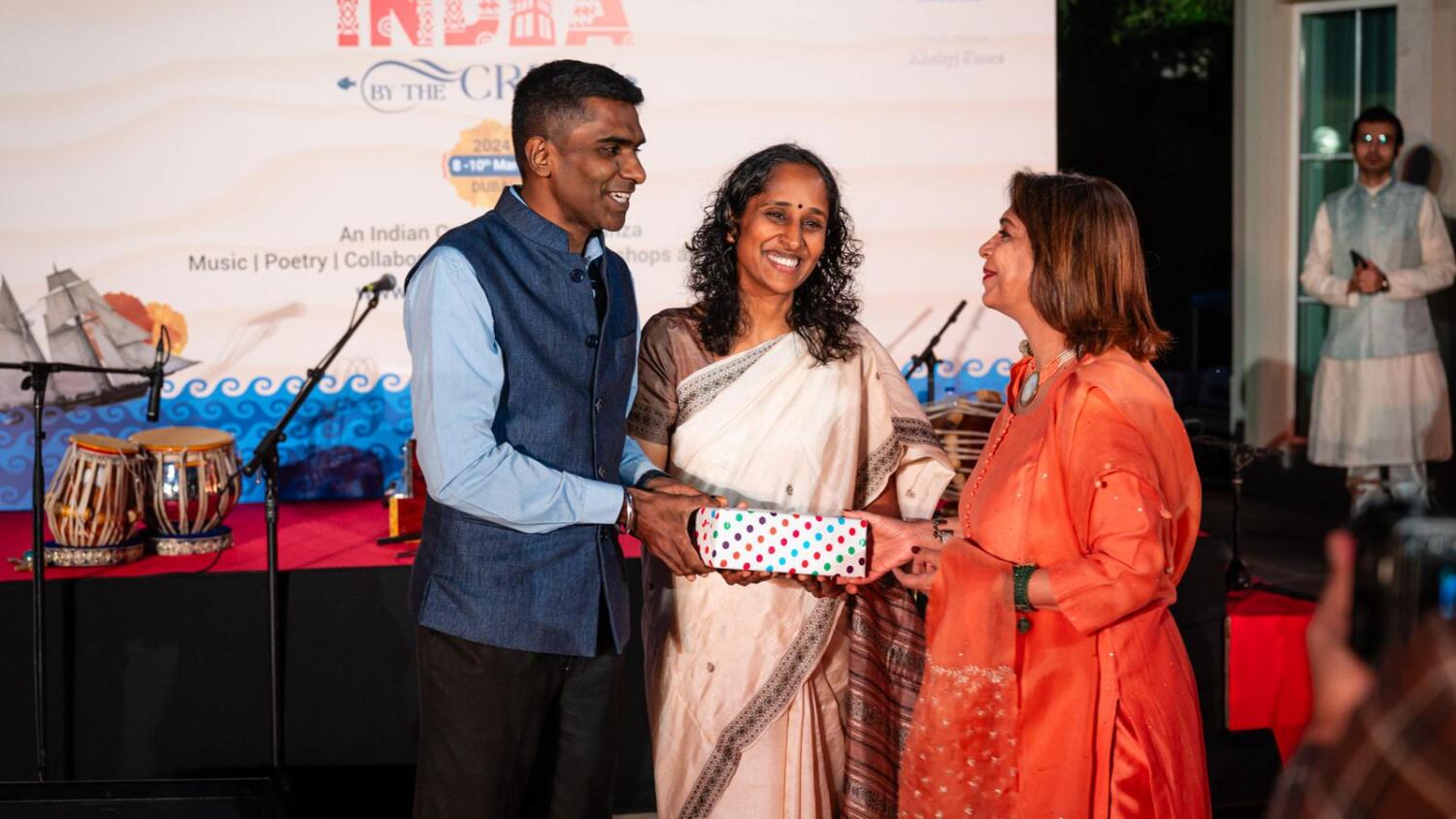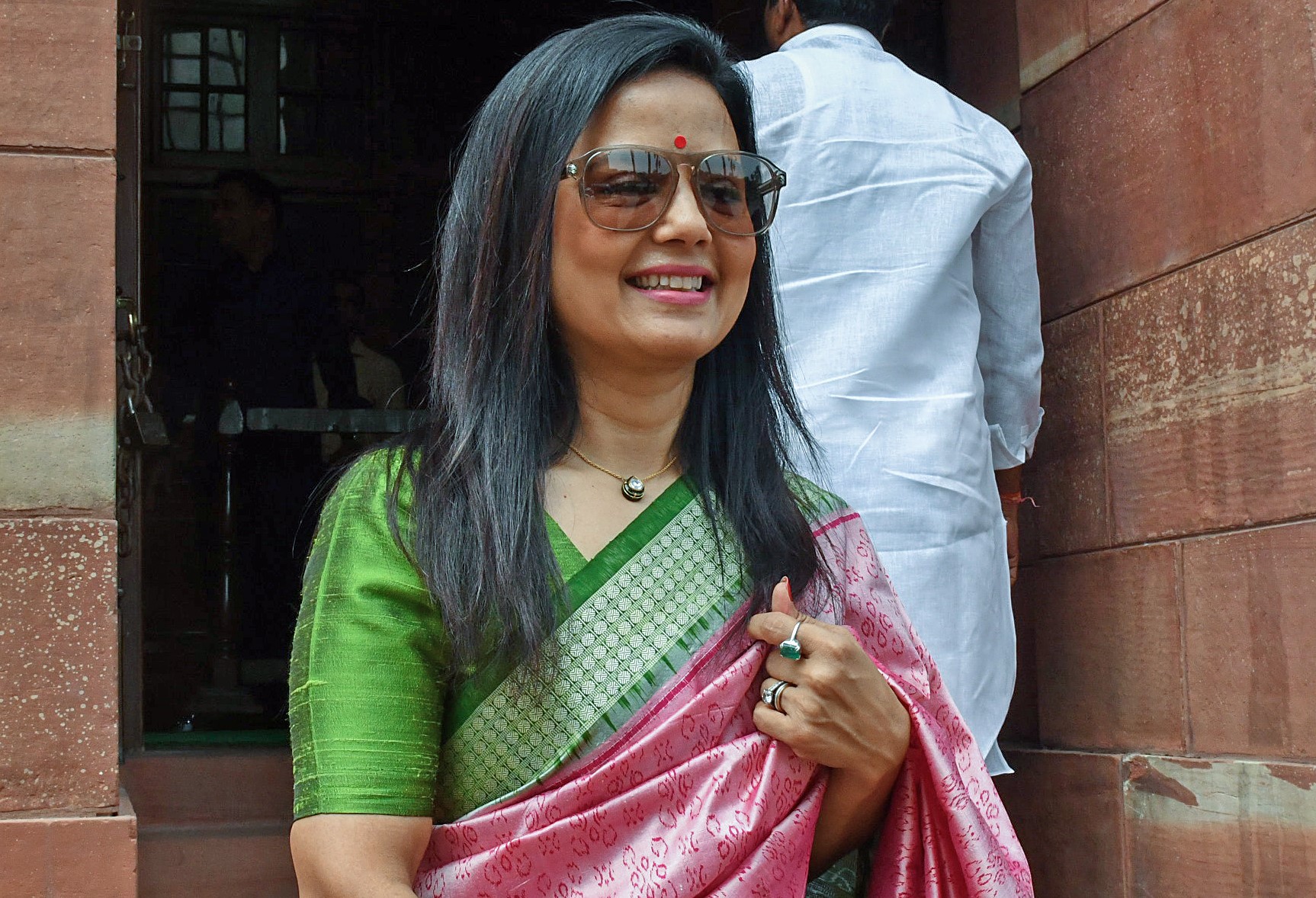US President Joe Biden and Indian Prime Minister join hands with Japan and Australia to launch new initiatives for free and fair trade in the Indo-Pacific region. Will this strategy work to contain the rising power of China?
Our Bureau
Tokyo/New Delhi/Washington, DC
Amid efforts by China to increase its global footprint by financing infrastructure projects, Quad leaders on Tuesday reaffirmed their shared commitment to deepen cooperation on infrastructure, which is critical to driving productivity and prosperity in the Indo-Pacific region.
The Quad meeting was attended by Prime Minister Narendra Modi, Australian Prime Minister Anthony Albanese, US President Joe Biden and Japanese Prime Minister Fumio Kishida.
A statement issued after the meeting of leaders of Australia, India, Japan and the United States here said that Quad will seek to extend more than 50 billion USD of infrastructure assistance and investment in the Indo-Pacific over the next five years.
The Quad leaders said in the statement that they share a commitment to addressing debt issues, which have been exacerbated by the pandemic in many countries. “Quad partners bring decades of skills and experience together to catalyse infrastructure delivery to the region. We are committed to working closely with partners and the region to drive public and private investment to bridge gaps. To achieve this, Quad will seek to extend more than 50 billion USD of infrastructure assistance and investment in the Indo-Pacific, over the next five years,” the statement said.
The leaders welcomed the meeting of the development finance institutions and agencies of the four countries in the margins of the Quad Leaders’ Meeting.
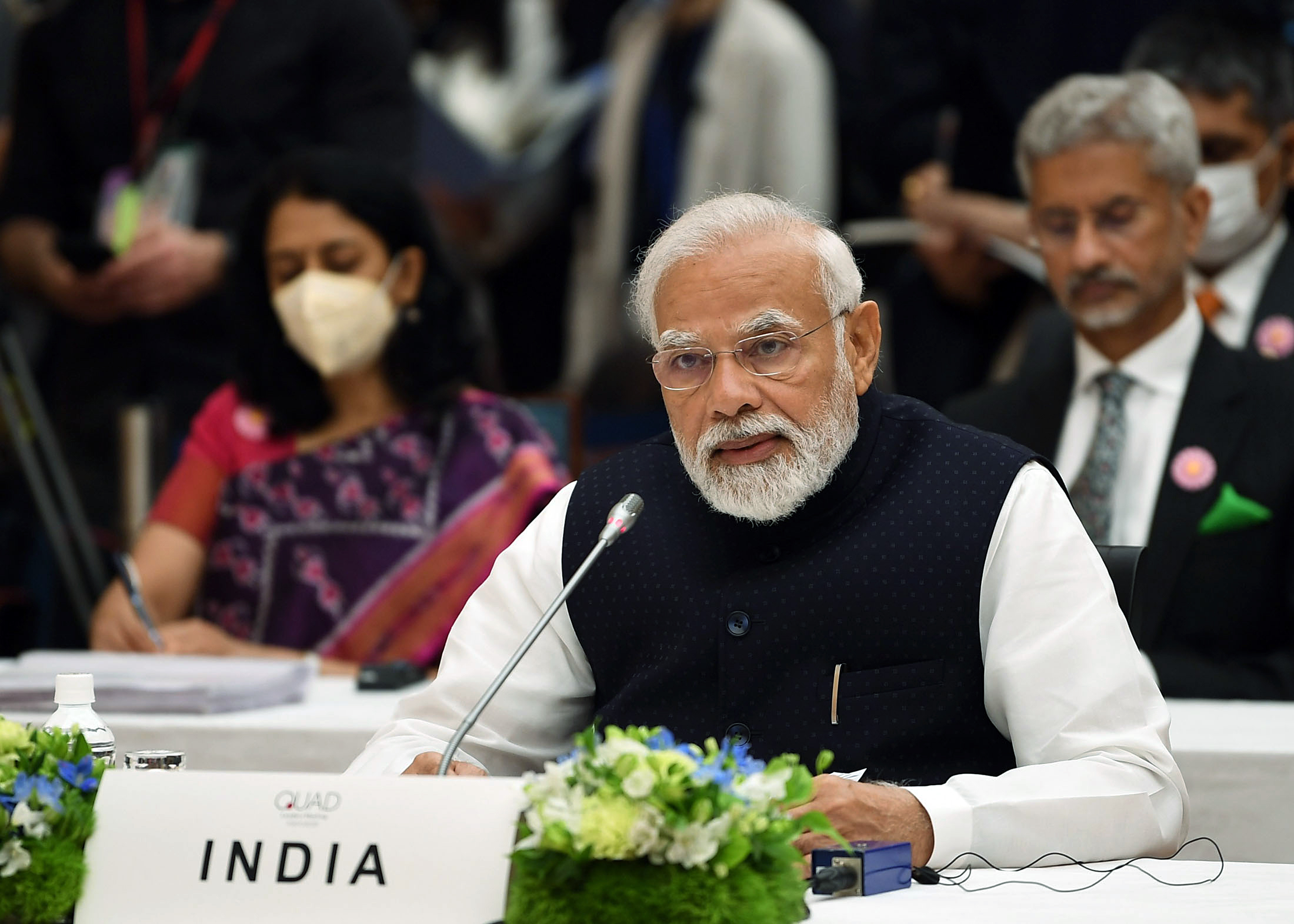
On COVID-19 and global health security, the Quad leaders said they welcome the progress on the expansion of J&J vaccine production at the Biological E facility in India under the Quad Vaccine Partnership-sustainable manufacturing capacity will yield long-term benefits in the fight against COVID-19 and future pandemics.
The leaders said they looked forward to WHO Emergency Use Listing Procedure (EUL) for the vaccines.
Also at Tokyo, Joe Biden unveiled the discussion on Indo-Pacific Economic Framework for Prosperity (IPEF) on Monday with a dozen initial partners, including India, which represent 40 per cent of the world GDP. “We’ll do that by taking out some of the most acute challenges that drag down growth and by maximising the potential of our strongest growth engines,” said Biden at the Indo-Pacific Economic Framework event in Japan. “The vision for an Indo-Pacific that is free and open and secure as well as resilient, where economic growth is sustainable and inclusive. We are writing new rules for the 21st-century economy. We are going to have all our country’s economies grow faster and fair,” he added.
A White House Fact Sheet said, IPEF will enable the United States and the allies to decide on rules of the road that ensure American workers, small businesses, and ranchers can compete in the Indo-Pacific.
“The United States and our partners in the region believe that much of our success in the coming decades will depend on how well governments harness innovation — especially the transformations afoot in the clean energy, digital, and technology sectors — while fortifying our economies against a range of threats, from fragile supply chains to corruption to tax havens,” the statement said.
Speaking at the launch of the event, Prime Minister Narendra Modi congratulated Biden for this initiative. “India will work for an inclusive and flexible Indo-Pacific Economic Framework; Trust, Transparency, and Timeliness are key,” he said.
The Prime Minister underlined that the foundation of resilient supply chains must be 3Ts – Trust, Transparency and Timeliness.
This Biden-led initiative saw the participation of Prime Minister of Japan Kishida Fumio, as well as the virtual presence of leaders of other partner countries viz. Australia, Brunei, Indonesia, Republic of Korea, Malaysia, New Zealand, Philippines, Singapore, Thailand, and Vietnam.
Also, Modi participated in an event in Tokyo Monday to launch discussions for an Indo-Pacific Economic Framework for Prosperity (IPEF) during which he underlined that the foundation of resilient supply chains must be 3Ts – Trust, Transparency and Timeliness.
In his comments during the launch ceremony, Prime Minister said that announcement of IPEF is a declaration of a collective desire to make the Indo-Pacific region an engine of global economic growth. India has historically been at the centre of trade flows in the Indo-Pacific region, having the world’s oldest commercial port in Lothal, Gujarat, said PM Modi, who called for finding common and creative solutions to tackle economic challenges of the Indo-Pacific region.
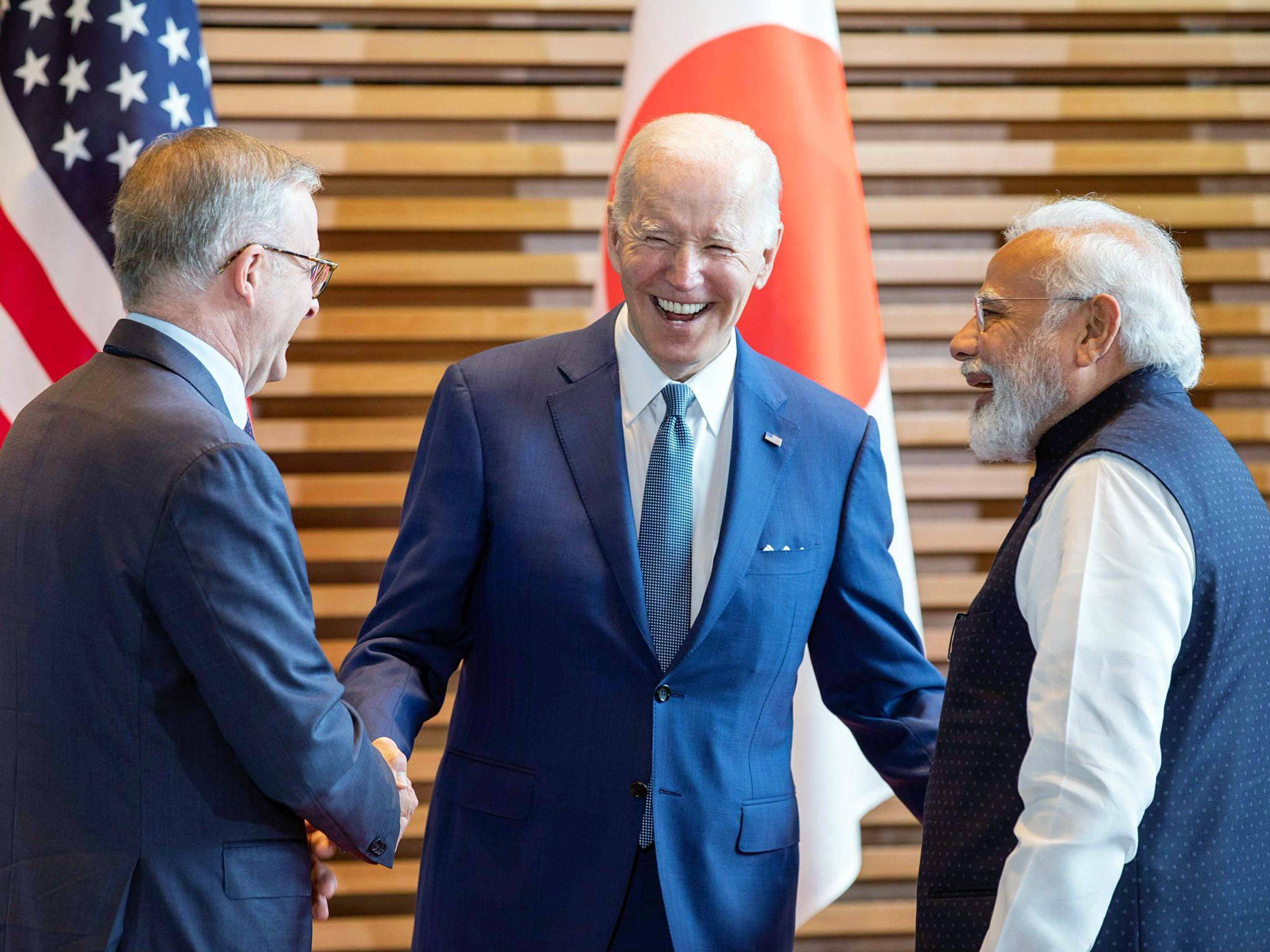
India is committed to a free, open, and inclusive Indo-Pacific region and believes that deepening economic engagement among partners is crucial for continued growth, peace, and prosperity. India is keen to collaborate with partner countries under the IPEF and work towards advancing regional economic connectivity, integration and boosting trade and investment within the region.
With the launch of the process today to establish the IPEF, partner countries will begin discussions focusing on strengthening economic cooperation and achieving shared goals.
At the meeting, in a veiled message to China, Quad countries said they will champion adherence to international law including the UN Convention on the Law of the Sea (UNCLOS) and are strongly opposed to any coercive, provocative or unilateral actions that seek to change the status quo and increase tensions in the area, such as the militarization of disputed features.
The leaders emphasised the maintenance of freedom of navigation and overflight. “We will champion adherence to international law, particularly as reflected in the UN Convention on the Law of the Sea (UNCLOS), and the maintenance of freedom of navigation and overflight, to meet challenges to the maritime rules-based order, including in the East and South China Seas,” the statement said.
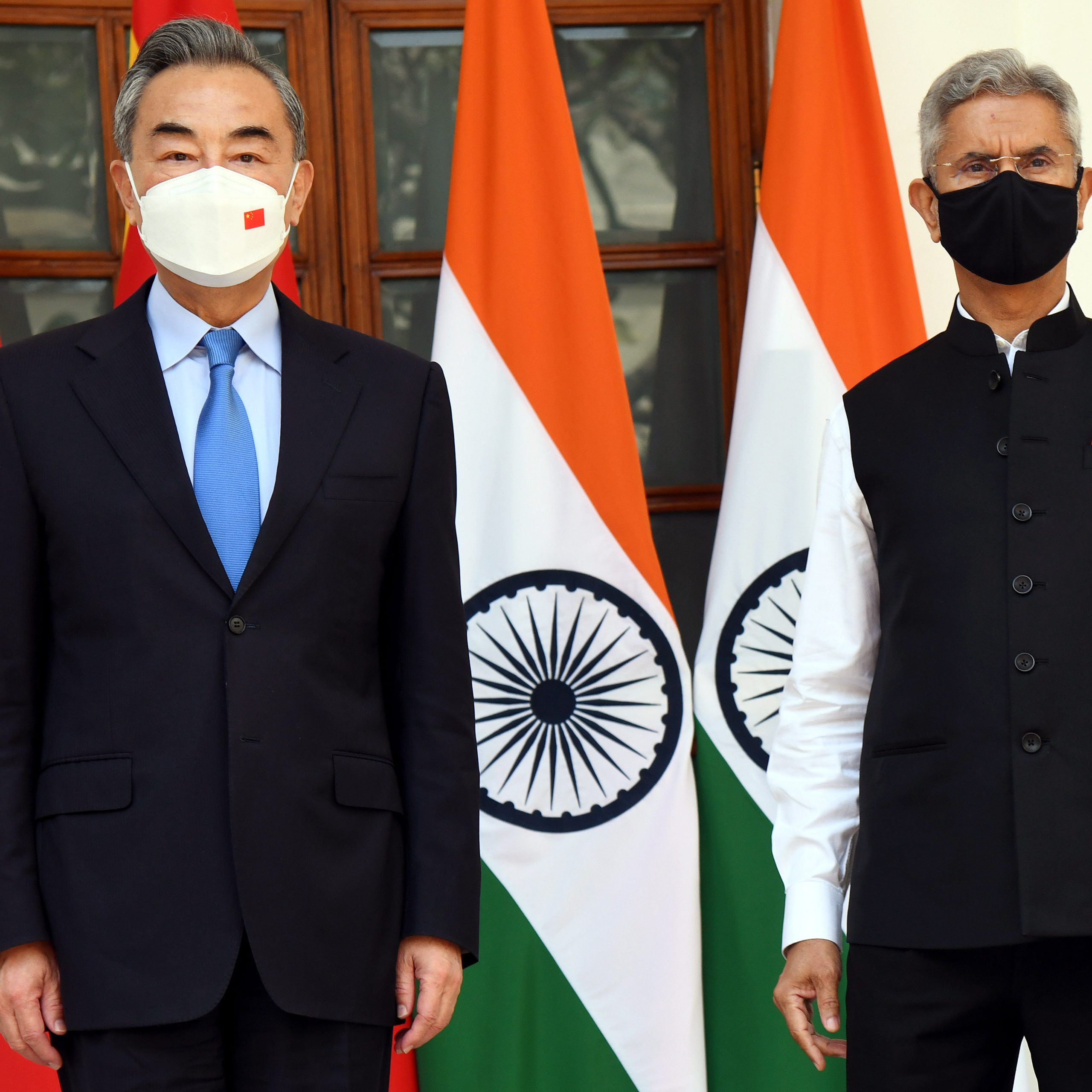
China looking for regional pacts with Pacific Island countries
China is seeking a regional agreement with Pacific Island nations that would expand its role in policing, maritime cooperation, and cybersecurity and also plans to offer scholarships for over 2,000 workers and young diplomats.
Wang Yi, who is on a 10-day visit to the pacific island countries, is scheduled to meet with regional leaders next week in Fiji. Prior to his visit, Beijing sent the drafts of the deal to 10 Pacific countries, The New York Times reported. Covering a range of issues, the documents appear to be a joint communique that Beijing wants the countries to adopt. They offer a detailed outline of how Beijing seeks to win friends and gain greater access to the island chains that have long played a strategic role in Asia’s geopolitical contests.
The visit and the agreement both seem aimed to counter American efforts to strengthen alliances in Asia.
Yi’s first stop is the Solomon Islands, where he is scheduled to appear on Thursday to sign a security pact that has already put the Americans and the region on edge. And he is visiting within days of President Biden’s Quad meeting in Tokyo with their members, where the focus was on containing China’s regional influence, according to The New York Times.
“Wang Yi’s visit in my view is a direct challenge to the open and free Indo-Pacific,” Peter Kenilorea Jr, the Solomon Islands deputy opposition leader said.
China is trying to show the Pacific that while the United States and its allies are “talking about you” in their Quad meeting, Kenilorea said, Chinese officials are “here to talk directly to you.” But, he added, China was also making demands.
“A regional approach is a clear escalation of Chinese Communist Party’s ambition in the Pacific,” Kenilorea said, referring to China’s ruling Communist Party.
It amounts to a rapid acceleration of a diplomatic push that has, until now, largely focused on one country at a time. The leaked agreement has the potential to pull several nations into Beijing’s orbit at once if widely approved, reported The New York Times.
And there are signs that the bold approach could backfire. The Pacific islands span thousands of miles, with sparsely populated countries that have unique histories and rivalries.
President David Panuelo of the Federated States of Micronesia has already warned that the documents reflected nothing short of an effort by China “to acquire access and control of our region.”
Granting China greater access, to the seas, lands, customs systems, and digital networks of their countries, will increase the chances of Beijing’s invasion into Taiwan, Panuelo argued.
He further noted that this also looks like going to war with the United States, Japan, Australia, and New Zealand.
According to the document sent to Pacific Island countries, this year, if Covid allows, China promises to start a new training program for young diplomats from Pacific Island countries. It’s part of a capacity-building plan that also includes seminars on Chinese governance.
On the Solomon Islands, the country’s media association has vowed to boycott Wang’s visit to Honiara, the capital, because the published schedule included a news conference on Thursday specifying that only one local journalist would be allowed to ask just a single question. “It’s so unfortunate that Solomons is being used by Beijing now to push their own regional ambitions and destabilize order,” the Solomon Islands deputy opposition leader said.

















